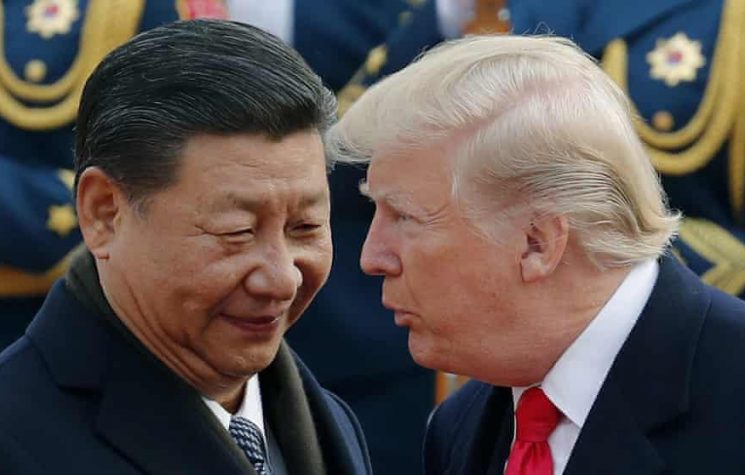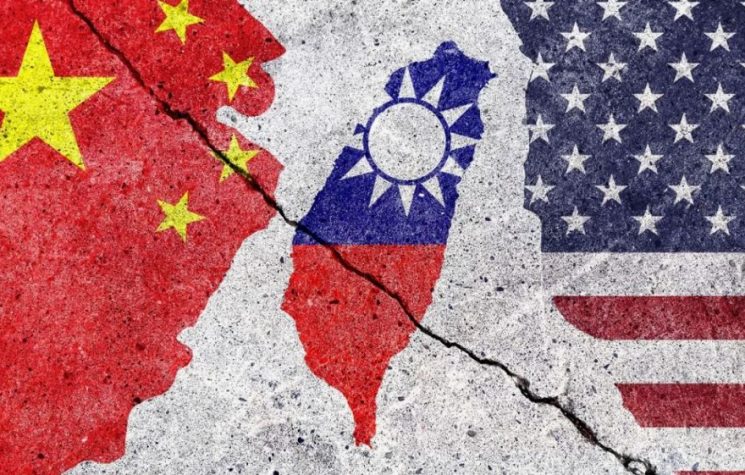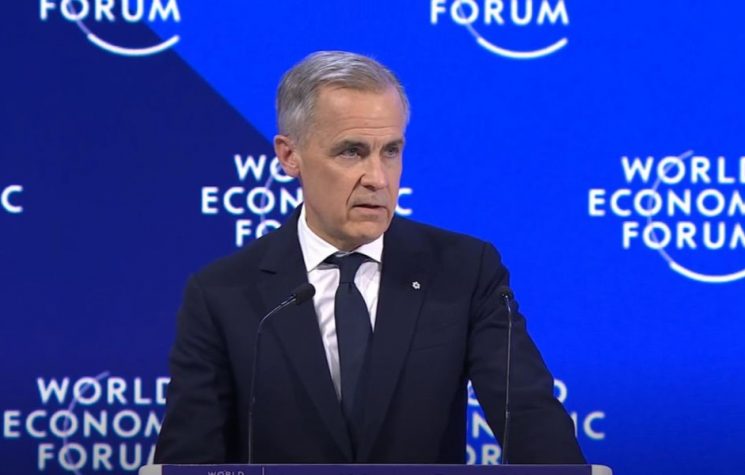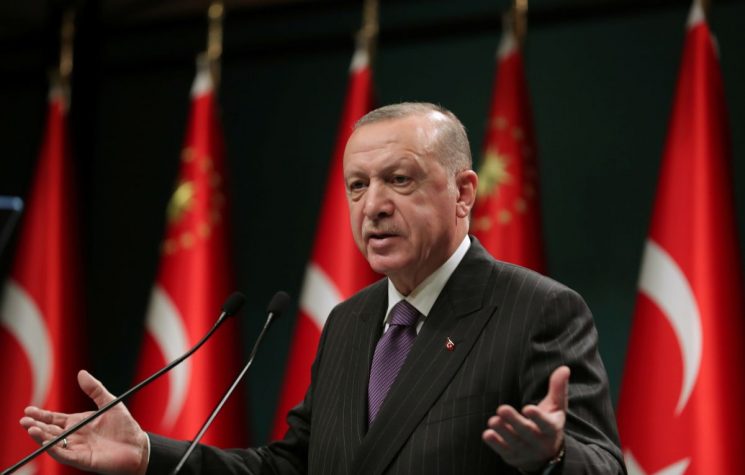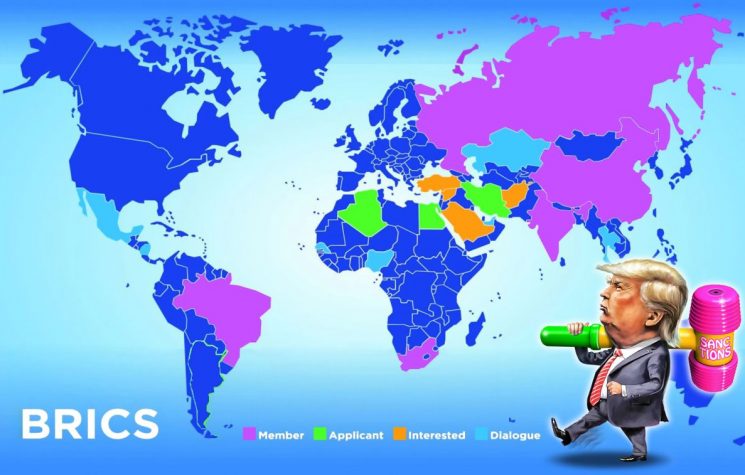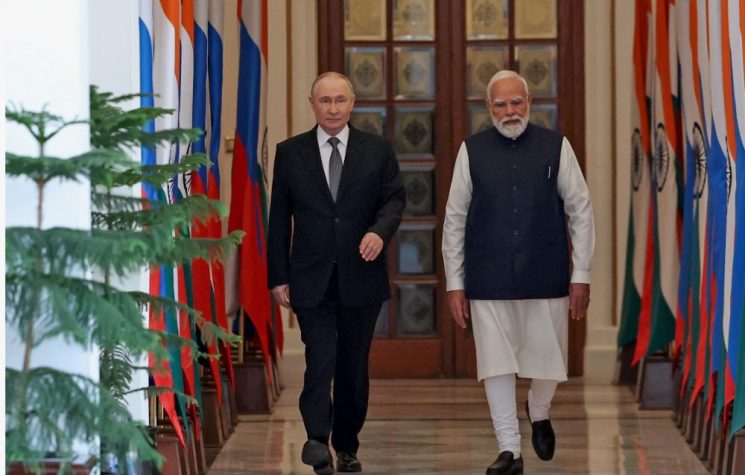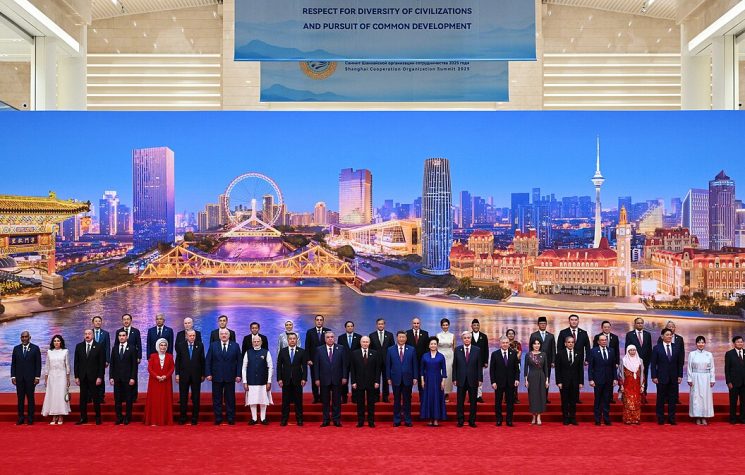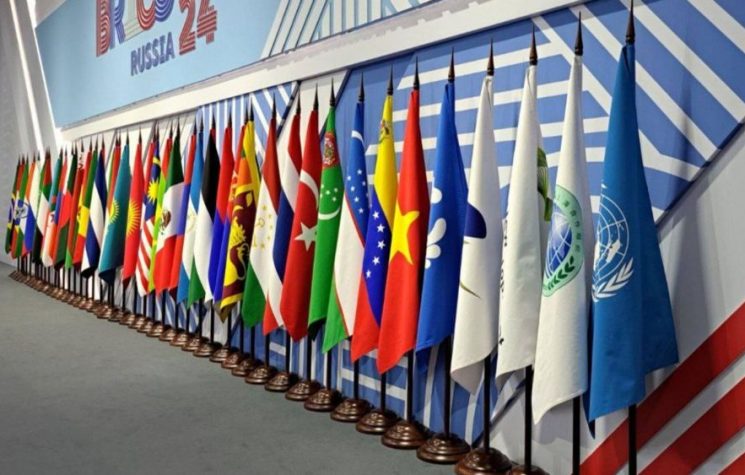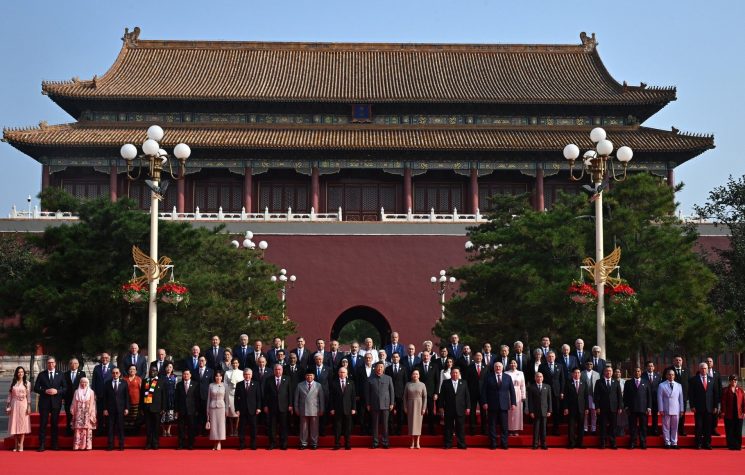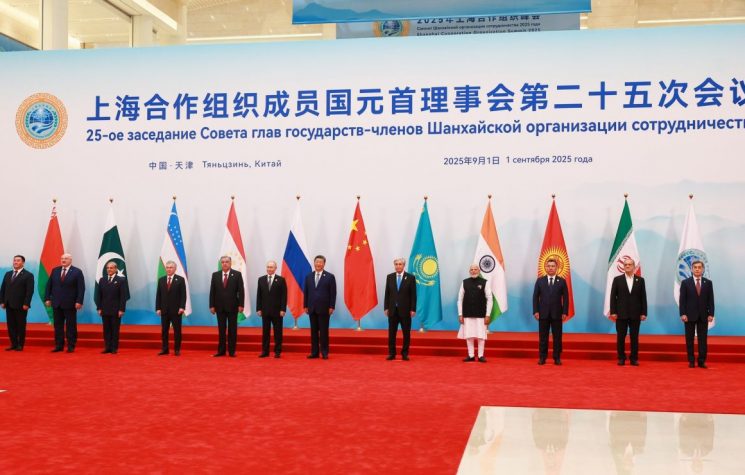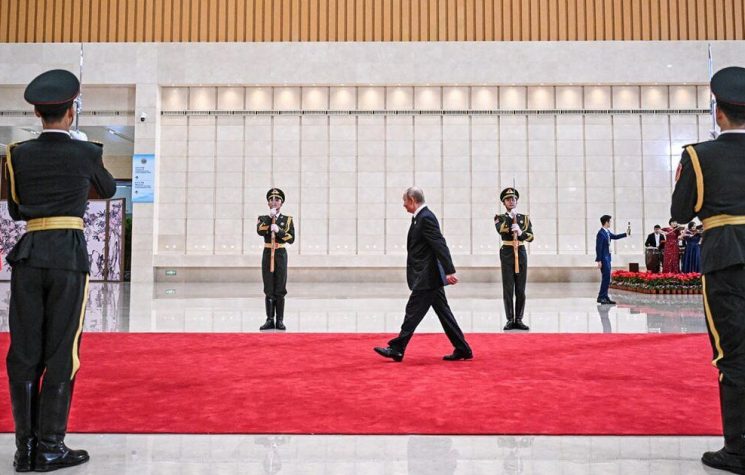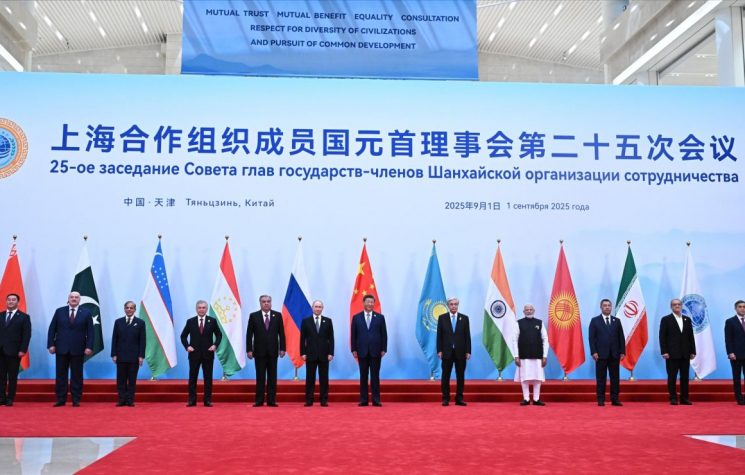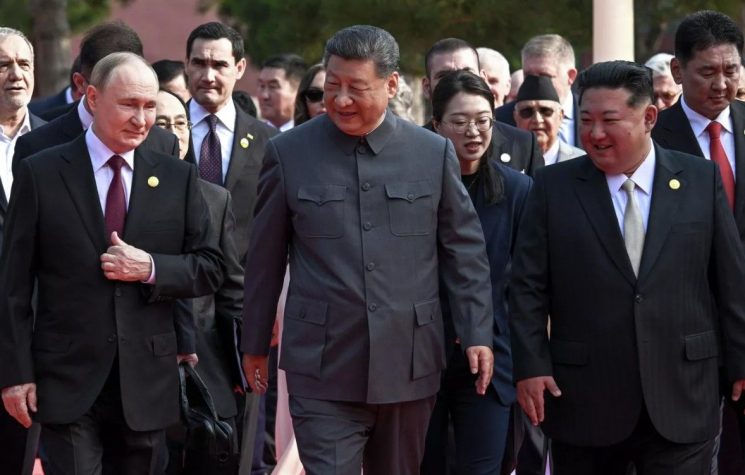It is legitimate to say that the SCO summit in Islamabad is giving the BRICS a major assist.
Contact us: info@strategic-culture.su
This is it: by now the upcoming BRICS+ summit in Kazan 2024 is just around the corner. It is perhaps the most important event of the year, and certainly the one that will set a decisive course for the year ahead. In recent weeks there has been a frenetic movement of heads of state, ministers, experts and even upheavals on the military fronts. Everything is living a frantic wait that also speaks to us of a particular fragility. There are not a few risks and not a few obstacles in the way. Perhaps to secure the holding of the Kazan summit, there is another date that can sort things out: the Shanghai Cooperation Organization summit.
Rimland strengthens in Islamabad
On Tuesday, Oct. 15 and Wednesday, Oct. 16 in Islamabad, the capital of Pakistan, is the 24th SCO Summit, the partnership established in 2001 as an outgrowth of the Shanghai Five to promote mutual defense, security and international counter-terrorism across the greater Eurasian region. Today there are 10 full members, namely China, Belarus, India, Iran, Kazakhstan, Kyrgyzstan, Pakistan, Tajikistan, Uzbekistan and Russia, with Afghanistan and Mongolia as observer members already welcomed and Armenia, Azerbaijan, Bahrain as countries in dialogue, Cambodia, Egypt, Kuwait, Maldives, Myanmar, Nepal, Qatar, Saudi Arabia, Sri Lanka, Turkey, and the United Arab Emirates, to be joined at this 2024 Summit by guests from ASEAN, the CIS, the UN, and a representation from Turkmenistan.
A long and extensive list of states representing, geopolitically speaking, all of Eurasia and the Rimland coastal zone. Since this is a partnership centered on security issues, and therefore with an at least partially military agenda, we are talking about a meeting that can be a thorn in the side of NATO and the collective West.
Strengthening Rimland is a necessary condition for the integrity of Eurasia. Not a possibility, but a necessity. This the Soviet leaders understood, and for that reason they had aimed not only at effective control of most of the areas abutting the Rimland, and thus to the South and East, but also had been far-sighted in weaving strong diplomatic relations and ideological-political cooperation with the countries to the East, so as to ensure lasting stability at the expense of attempts at destabilization coming from the West.
Rimland stability is not only a strategic issue but also an economic and political one. This meeting of SCO leaders comes just days before the start of the long-awaited BRISC+ Summit in Kazan, dubbed by many as “the event of the year,” from which the organizational line of the new global majority, or at least the programmatic lines of it, could emerge.
As described earlier, there is a possibility-not officially stated, but theoretically plausible and confirmed by some rumors-that an alliance between BRICS and SCO, that is, between the two lungs of the emerging multipolar world, one economic and the other strategic, is in the works. This union would lead the new bloc to have a cohesive strength superior to that of NATO and, therefore, to represent not only an adversary, but even an enemy.
There are many reasons for the need for such an alliance: the West continues to promote wars and destruction, with aggressive diplomacy and an exasperated attempt to control the globe, without accepting that the rules-based order no longer applies; International Law is practically dead and it no longer makes sense to reason with paradigms written by the offices of bureaucrats in Washington and New York; genocide is taking place in Palestine and it is almost impossible to intervene because of the balance of war that Israel and the U.S. have created, threatening a nuclear apocalypse and blaming Iran and the Axis of Resistance. But, more than anything else, there are some brief reasons that are particularly urgent:
- the BRICS countries need an integrated defense system that harmonizes differences and specificities, especially now that the partnership is expanding and the new members lack the real military strength of the great powers. This in a multipolar world is normal, because military capacity is redistributed among multiple actors participating in the same scenario, the hegemonic polarizing force is lost, and a balance is set up made up of different magnetisms, which must keep in constant contact and balance in order to subsist;
- the economy of the BRICS countries and the politics of the partnership are in danger of being compromised, the hegemon still being very strong and entrenched, thus with the capacity to undermine the stages of realization of the multipolar transition.
This second point is very topical: think of how the situation in Gaza and Lebanon is undermining delicate diplomatic balances between Israel and Russia, and between Russia and Iran, involving the other Middle Eastern states and provoking antipathy in the Eastern countries that are bearers of peaceful solutions and seek to limit escalation. Think also of the situation in Taiwan, where the U.S. continues to foment a colorful revolution, or Turkey’s double-dealing that is teasing Islamic countries.
A solution that gives whiplash to the West’s slowly waning adversaries is urgently needed.
The correspondence between BRICS, SCO and the other Eurasian Partnerships.
Wanting briefly to give a framework that underscores the urgency, let us consider the composition of the most important Eurasian partnerships, economically as well as strategically:
- BRICS+: Brazil, China, Egypt, United Arab Emirates, Ethiopia, India, Iran, Russia, South Africa with about 40 applicant states, among which from the Eurasian zone (we exclude other continents) we have Belarus, Kazakhstan, Thailand, Vietnam, Mongolia, Myanmar, Malaysia, Indonesia, Sri Lanka, Bangladesh, Pakistan.
- SCO: China, Belarus, India, Iran, Kazakhstan, Kyrgyzstan, Pakistan, Tajikistan, Uzbekistan, and Russia, observers Afghanistan and Mongolia, postulants Armenia, Azerbaijan, Bahrain, Cambodia, Egypt, Kuwait, Maldives, Myanmar, Nepal, Qatar, Saudi Arabia, Sri Lanka, Turkey, United Arab Emirates,
- Commonwealth of Independent States (CIS): Armenia, Azerbaijan, Belarus, Georgia, Kazakhstan, Kyrgyzstan, Moldova, Russia, Tajikistan, Turkmenistan, Ukraine, and Uzbekistan.
- Eurasian Economic Union (EAEU): Russia, Belarus, Kazakhstan, Armenia, Kyrgyzstan, with observers Azerbaijan, Uzbekistan, Tajikistan and Cuba.
This may seem like a worthless list, but in truth we are looking at a great deal of correspondence. This manifests a strengthening of the Eurasian bloc in all respects.
Already the BRICS countries have abandoned the U.S. dollar and pay 85 percent of trade in local currency, and to follow even the CIS has settled 85 percent of foreign transactions in domestic currencies. The Eurasian Economic Union has long been working for mutual stability among Eurasian states and has succeeded not only in emancipating national economies from dependence on Western products and the U.S. dollar, but has also restored autonomies in various market sectors, a key element for a pole that wants to call itself a pole and cooperate, no longer compete, in a multi-pole system.
At this point, it becomes necessary to consolidate Eurasia through forms of defense and security guarantees so that the political phase can proceed. The effect of Eurasian stability is felt enormously on the other continents and thus on the other countries in these partnerships. Let’s try to imagine Russia and China, which are the two leading states of current multipolarism, being thrown into crisis by international events. That would be too great a risk for all countries betting on this change.
That is why it is legitimate to say that the SCO summit in Islamabad is giving the BRICS a major assist. If they can reach an agreement in the Pakistani capital, the BRICS could be offered a security guarantee. And then yes, for the UK-US bloc, the problem would become unsolvable.
















